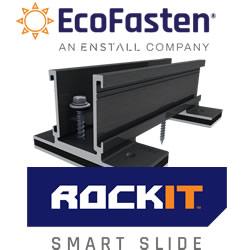UK Based Nexeon to Begin Commercial Supply of Silicon Anode Material to Panasonic
• Nexeon's advanced Silicon Anode material can enable a step change in battery cell energy density of up to 50%, dramatically improving ELECTRIC VEHICLE (EV) range • Panasonic and Nexeon have entered into a long-term supply agreement with the aim of powering lithium-ion cells with this game changing material from 2025 • The partnership marks the industry's first significant announcement of the use of Nexeon's energy-dense Silicon Anode materials in commercially supplied lithium-ion cells for EVs.
Nexeon, a pioneering battery materials company, today announces a partnership with Panasonic Energy Co., Ltd., a Panasonic Group company.
Nexeon has developed an advanced silicon-based anode material that has the potential to catapult the energy density of lithium-ion cells by up to 50%. This breakthrough redefines the limits of energy density and enables a new era of enhanced battery performance.
The agreement will see Nexeon supplying materials to Panasonic that will result in the production of cells that address key consumer concerns related to EVs. The next generation ‘drop-in' material, allows Panasonic to use a much higher percentage of silicon in lithium-ion cell anodes when compared with first generation materials such as Silicon-oxide, without requiring critical changes to the cell manufacturing process or significant capital investment.
Increasing the energy density of lithium-ion batteries unlocks unparalleled product performance for EV owners, offering increased vehicle range and reduced charging time. In addition to improved performance, the technology will enable automotive manufacturers to realize impactful cost savings on their EV battery pack systems.
Panasonic, renowned for its commitment to quality and innovation, recognized Nexeon as a company developing class-leading silicon anode materials. The decision to partner with Nexeon underscores Panasonic's commitment to remaining at the forefront of technological advancements.
"The partnership with Panasonic is a testament to the progress we have made with our battery material technology," said Scott Brown, CEO of Nexeon. "Our Silicon Anode material will bring dramatically improved vehicle range and charging speeds for EVs, helping to address drivers' concerns and accelerate the transition to cleaner forms of mobility."
Nexeon aims to accelerate the adoption of sustainable and more efficient battery technology to drive positive change on a global scale throughout the battery value chain. Through close collaboration with Panasonic, its ‘drop-in' material will power EVs from 2025.
"This collaboration will help us drive growth of the lithium-ion battery industry and accelerate the world towards a net-zero emissions future," stated Shoichiro Watanabe, Executive Vice President of Panasonic Energy. "By integrating Nexeon's groundbreaking battery material with our advanced cell manufacturing capabilities, we believe that we can address the concerns such as range anxiety and charging time and contribute to accelerating the adoption of EVs."
Featured Product

